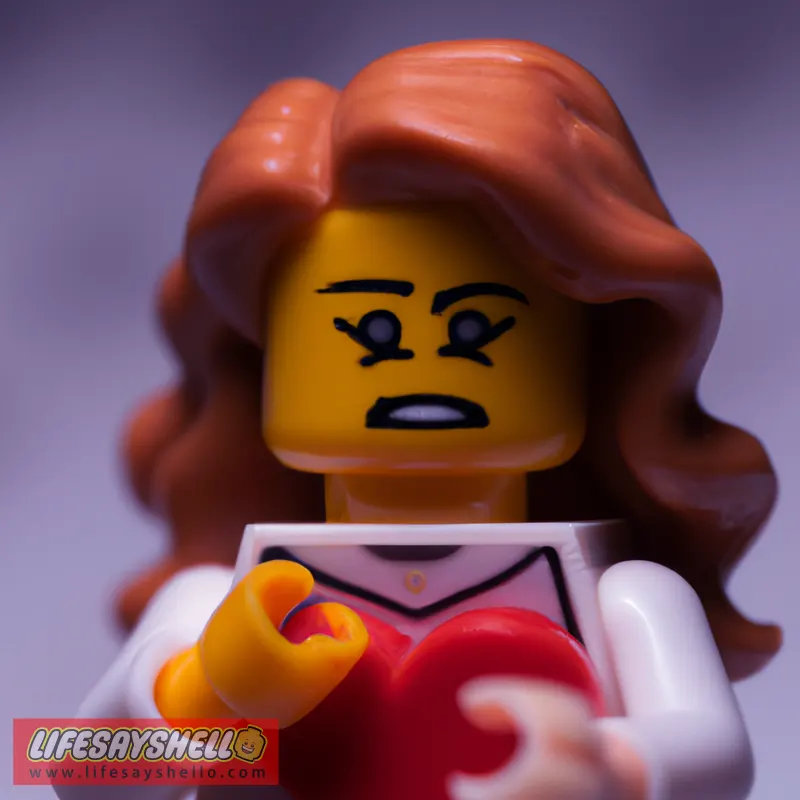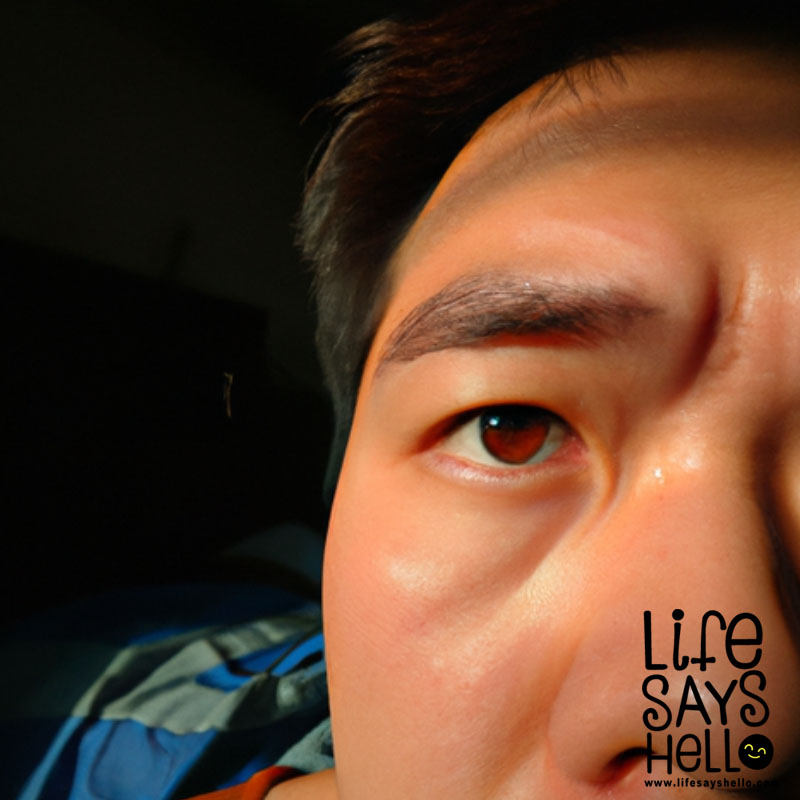Why Are My Breasts So Sore? 9 Possible Causes and When to See a Doctor

Have you ever experienced breast soreness that made you wonder "Why are my breasts so sore?" Breast pain is very common, especially right before your period. But constant or severe breast soreness should not be ignored as it may indicate an underlying health issue.
Let's look at some of the most common reasons for breast pain and when you need to see your doctor about it.
Hormonal Changes During Menstrual Cycle
For many women, the most common cause of breast soreness is hormonal changes related to their menstrual cycles. Sore or tender breasts typically happen about 3-5 days before your period starts.
This is due to rising levels of the hormones estrogen and progesterone right before your period. These hormones cause fluid retention and growth in breast tissue. This swelling puts pressure on the milk ducts and fatty tissue, leading to breast tenderness or pain.
Once your period starts, estrogen and progesterone levels begin to fall. This decrease in hormones reduces the swelling and pressure in your breasts, so the pain usually goes away within a few days after your period begins.
If you experience breast soreness that corresponds with your menstrual cycle every month, it's likely just normal premenstrual syndrome (PMS). However, if the pain is severe or lasts more than a week, see your doctor to rule out other possible causes.
Breast Development During Puberty
Breast soreness is also very common during puberty as breasts start to develop. The first sign of puberty in girls is usually breast buds - small, tender lumps under one or both nipples.
As estrogen levels rise during puberty, breast tissue grows rapidly. This growth stretches the skin and puts pressure on nerves in the breast area, leading to soreness or tenderness. The soreness may be felt in the breasts, nipples or armpits.
Breast development can be quite painful for some girls. However, it's a normal part of puberty and the soreness usually resolves on its own within a couple of years. Wearing a light, supportive bra can help minimize discomfort. See a doctor if pain is severe or you have any concerns about your breast development.
Breastfeeding and Infections
Breastfeeding mothers may also experience breast soreness, often due to blocked milk ducts or an infection called mastitis.
When milk is not properly drained from all the milk ducts in the breast, it can cause a duct to become blocked. This leads to swelling, redness and a tender lump in that area of the breast. It's important to massage the area and nurse frequently from that side to clear the blocked duct.
If a blocked duct is not cleared, it can progress to a breast infection called mastitis. Signs include fever, chills, and one area of the breast becoming red, hot and very painful. Mastitis requires prompt medical treatment, usually antibiotics, to clear the infection.
Breast infections like mastitis primarily affect breastfeeding moms. However, blocked ducts and mastitis can occasionally occur in women who are not breastfeeding as well. See a doctor right away if you have symptoms of an infection.
Wearing an Unsupportive Bra
Wearing a bra that doesn't fit properly or offer adequate support can strain the Cooper's ligaments that connect breast tissue to the chest wall. These ligaments help support the weight of the breasts.
If the breasts are not properly supported, the excess movement and tugging on these ligaments can overstretch them. This leads to pain and discomfort that is often felt along the sides or underneath the breasts.
The best way to prevent breast soreness from ill-fitting bras is to get properly fitted for a supportive bra. Bras should fit snugly without pinching or digging into the skin. The straps should not dig into the shoulders, and breast tissue should not bulge out of the cups.
Look for bras with wide bands and molded, contoured cups to evenly distribute the weight of the breasts. Sports bras can also help minimize bounce during physical activity. Consider getting refitted every year as bra size can fluctuate.
Stress and Muscle Tension
Stress and anxiety can manifest physically in many ways, including breast pain and tenderness.
When the body is under stress, muscles tense up. This includes the chest muscles like the pectorals. Tight, tense chest muscles can put pressure on breast tissue, irritating nerves and causing soreness.
Stress and anxiety can also increase inflammation in the body, which may contribute to breast pain. Managing your stress through relaxation techniques, exercise, or speaking with a therapist can help.
Consuming Too Much Caffeine
Caffeine consumption from sources like coffee, tea, soda and energy drinks has also been linked to breast pain in some women.
Caffeine is a stimulant that can make breast tissue swell and become tender or painful in those who are sensitive. The caffeine triggers changes in hormone levels and fluid balance that may inflame breast tissue.
Limiting your caffeine intake to less than 300mg per day may help prevent breast pain. Cutting back on chocolate, which also contains caffeine, can help as well.
Injury or Bruising
In some cases, breast soreness is caused by a blow or injury to the breast. Bruising, pulled muscles or even minor trauma from bumping into something can cause breast pain and tenderness.
If you experience pain after an injury like bumping your breast, falling, or being hit in the chest during sports or an accident, apply ice immediately to reduce swelling. Take an over-the-counter pain medication if needed.
See a doctor if pain persists for more than a few days after the injury or if you notice any abnormal lumps, discharge or changes in the breast. Unexplained bruising that doesn’t go away could be a sign of an underlying issue that needs medical evaluation.
Other Potential Causes
While hormonal changes, breast development, and ill-fitting bras are the most common culprits, breast pain can also be caused by:
- Birth control pills or hormone replacement therapy
- Fibrocystic breast changes
- Breast cysts or benign breast tumors
- Breast cancer in rare cases
Hormonal birth control and HRT with estrogen can cause fluid retention and swelling similar to premenstrual changes. Fibrocystic breasts, cysts and benign tumors may feel tender or painful as they enlarge.
Breast cancer usually does not cause pain, but in some cases, a fast-growing tumor could lead to breast soreness. It's important to rule out these less common causes if pain does not resolve within a normal timeframe.
When to See a Doctor
In most cases, breast soreness is not a major cause for concern. However, you should make an appointment with your doctor if:
- Pain lasts longer than 1 week around the time of your period
- Pain prevents you from doing normal daily activities
- You notice any lumps, swelling, changes in breast size or shape
- You have symptoms of infection like fever, heat and redness
- Pain is only in one breast
- Breast pain is severe and doesn't respond to over-the-counter remedies
While breast pain is rarely linked to cancer, it's always a good idea to mention persistent or severe breast soreness to your doctor so they can examine you and determine if further testing is needed. Breast exams and potential imaging like mammograms can provide peace of mind.
Tips for Relief
Here are some self-care tips to help alleviate breast soreness when it occurs:
- Wear a well-fitted, supportive bra. Opt for soft, breathable fabrics.
- Apply cold or hot packs to help reduce swelling and pain.
- Take over-the-counter pain medication like ibuprofen or acetaminophen.
- Limit caffeine intake which can worsen breast pain.
- Reduce stress through yoga, meditation, or talking to a therapist.
- Avoid sleeping on your stomach, which puts pressure on tender breast tissue.
- Perform breast self-exams regularly to detect any abnormal changes.
- Gently massage the breasts starting from the chest wall moving inward.
When to See Your Doctor
While breast pain is common and usually not serious, don't ignore severe or persistent soreness. Contact your doctor promptly if pain does not resolve within the expected timeframe or you notice any unusual changes in your breasts. Getting evaluated quickly can provide peace of mind and catch any problems early.
With an understanding of the common causes of breast soreness, you can have a better idea of when pain may be normal and when you need further medical assessment. Be attentive to your body and speak to your doctor if you have any concerns.
Conclusion
Breast soreness is a common complaint among women that can result from hormonal fluctuations, breast development, injuries, and other factors. While it's generally not a major concern, severe or prolonged breast pain should not be ignored.
The key is being familiar with your own body and what's normal for you. Track your symptoms and note if breast pain corresponds to your menstrual cycle or any changes you've experienced. Wearing a supportive bra and minimizing caffeine intake can provide relief in many cases.
Don't hesitate to make an appointment with your doctor for an exam if breast pain is persistent, only occurs on one side, or is accompanied by any unusual changes in your breasts. It's always better to be safe when it comes to breast health.
With a better understanding of the possible reasons for breast soreness, you can determine if it's likely just regular premenstrual tenderness versus something that needs further evaluation. Stay attentive to your breasts and don't shy away from discussing any concerns with your healthcare provider.




Comments